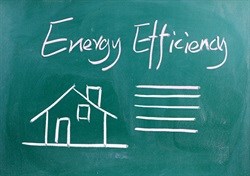
Retrofitting energy-saving equipment, such as solar panels, batteries, LED lighting, water-saving taps and showers, and water recycling equipment is no more expensive than starting from scratch on a new build, said Steward, and is worth considering when one takes in the ecological and financial implications later.
Information from Danielle Klaff, eco-auditor and founder of Green Your Home, shows how easy it is to change from an energy-inefficient home that does not recycle water or waste to one that would score well in an eco-audit. There are four main aspects that need to be assessed when doing an audit: energy usage, water usage, dealing with waste, and chemicals used - and, while it may take a couple of hours to do an audit, the information gleaned after such an exercise will undoubtedly make people think about making changes in their home. These could be simple and needn't cost a lot of money, she said.
"In terms of energy, going off the grid completely is what many people would like to do, which could cost around R150,000 for an average three-bedroomed family home," she said.
There are, however, other less expensive things one can install in stages to convert the home over time instead of all at once.
To save energy many would first think of installing a solar water-heating system, as the geyser is one of the largest consumers of power in any household. This can cost approximately R16,000. One can, however, go the black evacuator tubing system, which is laid out on the roof of the house and warms water from the heat of the sun. Many people use this system and find it effective enough for them, said Klaff. Some people do prefer heat pumps, but the problem with these, she said, is that the heat pump does not work during power outages as opposed to the solar geyser, which is independent. Another simple way of saving electricity is to install a timer on the geyser, which will allow it to switch on at stipulated times of the day.
Stoves and kettles also use a lot of electricity and one can cut back by installing a gas stove and (a very simple tip) only filling the kettle with the amount of water to be used at that time instead of to the top, said Klaff.
Another system used, which does help during power outages as well as cutting down on electricity consumption, is a system with photovoltaic panels that will charge batteries. These batteries then power lights and smaller appliances in the home, she said. These systems can range from R7,000 to R50,000 - depending on the size needed and number of batteries. What could also save many households (7% of an average power bill goes to keeping appliances in the home in standby mode) is plugging appliances that don't have to be on all the time into a 'smart strip'. This device is inexpensive and it shuts off the supply of electricity to the appliance if it is not used for an hour and then immediately reinstates supply when the appliance is switched on again.
Heating can be costly, said Klaff, and the most effective way of heating is to install a slow wood-burning stove in a central position in the home with the flue exposed, never on an outside wall. The heat from this will radiate throughout the home and heat a large area. In order to keep all this heat in, the insulation on the windows and doors must also be checked, as a large percentage can be lost through the tiniest of gaps.
Water consumption is often forgotten in households and simple changeovers of shower heads and taps to the aerated versions can cut the use of water dramatically, said Klaff. The installation of a grey water system is usually recommended to water gardens, but this does not necessarily have to be an expensive tank system, it can be a DIY gravity-fed system that feeds bath and basin water to the garden, she said.
While recycling and watching the chemical usage in a home does not save money, it does have a huge impact on the environment and more people are becoming aware of the need to have recycling stations in the home. Planning a kitchen around recycling and composting will add value for the user of the kitchen, which, in turn, adds value to the home, said Steward.
"In most cases if money is spent improving a home, the increase in market value is higher than the actual cash spent. Often the simple, cost-effective improvements or changes can add much value to the residents in ease of living and comfort," said Steward.
For further information regarding eco-auditing a home, contact Danielle Klaff on +27 (0) 72 797 0904 or email az.gro.dlihcorivne@elleinad.